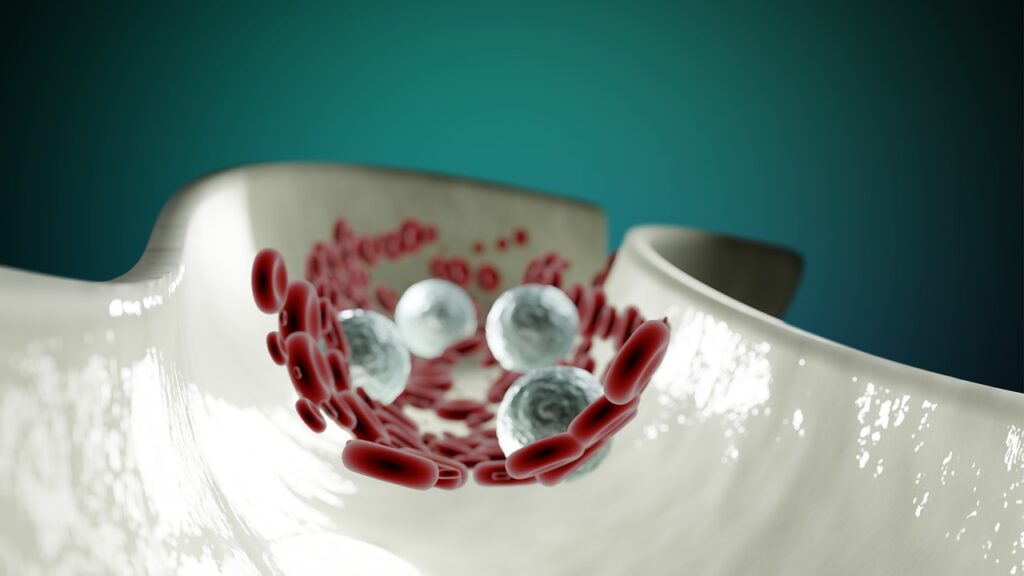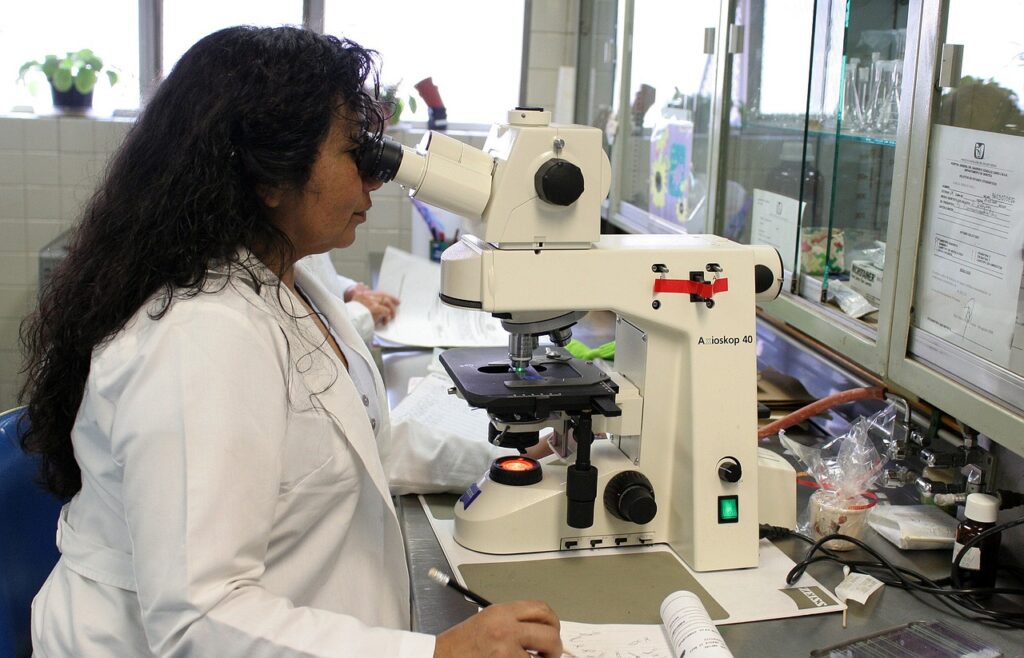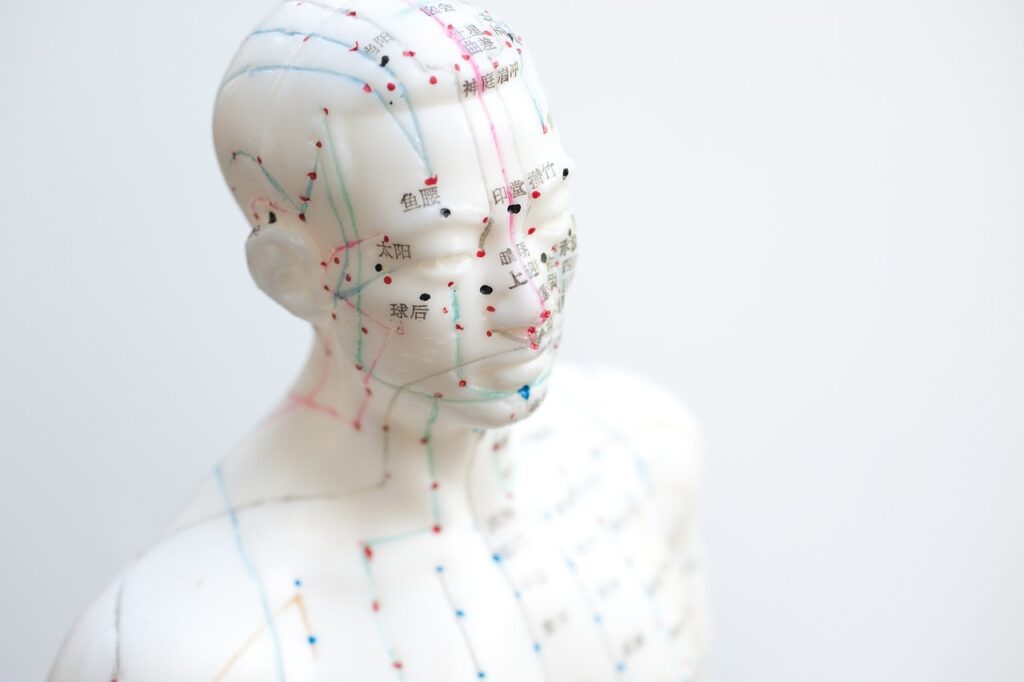Bioidentical hormones have sparked both interest and controversy in the medical community and among those seeking hormone replacement therapy. This comprehensive guide aims to demystify bioidentical hormones by providing an in-depth look at what they are, how they differ from traditional hormone therapies, and the scientific evidence supporting their use. We’ll explore the potential benefits and risks, discuss how to navigate their use effectively with healthcare providers, and delve into the regulatory and ethical issues surrounding these compounds. By the end of this guide, readers will have a clearer understanding of bioidentical hormones and be better equipped to make informed decisions about their health.

Table of Contents
Table of Contents
Key Takeaways
Understanding Bioidentical Hormones
Definition and Basic Concepts
Comparison with Traditional Hormone Replacement Therapy
Sources and Types of Bioidentical Hormones
The Science Behind Bioidentical Hormones
How Bioidentical Hormones Work in the Body
The Role of Bioidentical Hormones in Homeostasis
Research and Studies on Efficacy and Safety
Health Benefits and Risks of Bioidentical Hormones
Potential Therapeutic Uses
Side Effects and Health Concerns
Long-Term Implications for Health and Wellbeing
Navigating the Use of Bioidentical Hormones
Consulting with Healthcare Providers
Personalizing Treatment: Dosage and Administration
Monitoring and Adjusting Treatment Over Time
Regulatory and Ethical Considerations
FDA Oversight and Approval Process
The Debate Over Patenting and Accessibility
Ethical Implications of Hormone Therapy
Conclusion
Frequently Asked Questions
What exactly are bioidentical hormones?
How do bioidentical hormones differ from traditional hormone replacement therapy?
What are some common sources of bioidentical hormones?
What are the potential health benefits of using bioidentical hormones?
Are there any risks associated with bioidentical hormone therapy?
Do bioidentical hormones require FDA approval?
Key Takeaways
- Bioidentical hormones are designed to chemically match hormones naturally produced by the body and may offer an alternative to traditional hormone replacement therapy.
- Understanding the mechanisms by which bioidentical hormones interact with the body is crucial for evaluating their role in maintaining homeostasis and overall health.
- While there is evidence suggesting bioidentical hormones can be beneficial, they also carry potential risks and side effects that must be carefully considered.
- Effective use of bioidentical hormones involves personalized treatment plans, ongoing monitoring, and a collaborative approach with healthcare professionals.
- The production and use of bioidentical hormones raise important regulatory and ethical questions, including FDA oversight, patenting issues, and access to therapy.
Understanding Bioidentical Hormones

Definition and Basic Concepts
Bioidentical hormones are special types of hormones that are made to be just like the ones your body naturally produces. They are not the same as the hormones used in traditional hormone replacement therapy, which are often made from the urine of pregnant horses or created in a lab to be similar, but not identical, to your body’s hormones.
Bioidentical hormones can come from plants or be made by scientists to match human hormones. Here’s a simple list of some common bioidentical hormones and what they do:
- Estrogen: Helps with women’s health, like during menopause.
- Progesterone: Works with estrogen and is important for women’s periods and pregnancy.
- Testosterone: Important for men’s health and also affects women.
Remember, even though these hormones are made to be like your body’s own hormones, they can still have effects that are important to talk about with a doctor.
It’s really important to understand that bioidentical hormones are used for specific reasons, like if your body doesn’t make enough of a certain hormone or if you’re going through changes like menopause. But, just like any medicine, they can have side effects, so it’s a good idea to learn as much as you can about them.
Comparison with Traditional Hormone Replacement Therapy

Bioidentical hormones are often compared to traditional hormone replacement therapy (HRT). Both aim to relieve symptoms caused by hormone imbalances, but they are not the same. Traditional HRT uses hormones made from the urine of pregnant horses and other synthetic hormones. Bioidentical hormones, on the other hand, are created to be chemically identical to the hormones your body naturally produces.
Here’s a quick look at some differences:
- Source: Traditional HRT comes from animals or synthetic sources. Bioidentical hormones come from plant sources and are made to match human hormones.
- Chemical structure: Bioidentical hormones have the same structure as your body’s natural hormones. Traditional HRT hormones are similar but not identical.
- Customization: Bioidentical hormones can be customized for each person. Traditional HRT usually comes in standard doses.
Remember, the goal is to balance your hormones in a way that works best for your body. Whether you choose bioidentical hormones or traditional HRT, it’s important to talk with your doctor about what’s right for you.
Sources and Types of Bioidentical Hormones

Bioidentical hormones come from plants like soybeans and wild yams. They are made to be just like the hormones our bodies make naturally. There are different types of bioidentical hormones, and they can be used for different health issues.
- Estrogens: These are used mostly by women, especially during menopause.
- Progesterone: This hormone can help with menstrual problems and is also used during menopause.
- Testosterone: Both men and women might need this hormone for energy and muscle strength.
Bioidentical hormones can be made into pills, creams, patches, and other forms. It’s important to know that not all bioidentical hormones are the same. Some are made just for you, based on tests your doctor does.
Remember, even though these hormones are made to be like your own, they can still have side effects. It’s always best to talk with your doctor about what’s right for you.
The Science Behind Bioidentical Hormones

How Bioidentical Hormones Work in the Body
Bioidentical hormones are like your body’s natural hormones. They fit into your cells just right, like a key in a lock. When you take these hormones, they can help your body work better if your own hormones are out of balance.
Bioidentical hormones can do a lot of good things in your body. They can help with feelings like hot flashes, mood swings, and trouble sleeping. They can also help your bones stay strong and your skin look fresh.
- Estrogen: Helps with things like hot flashes and bone health.
- Progesterone: Can make your mood better and help with sleep.
- Testosterone: Helps with energy and muscle strength.
Remember, even though bioidentical hormones can be helpful, it’s important to talk to a doctor. They can tell you how much to take and make sure it’s safe for you.
The Role of Bioidentical Hormones in Homeostasis
Bioidentical hormones are like your body’s natural messengers. They tell your organs what to do to keep everything balanced and working right. Homeostasis is a fancy word for this balance. It’s super important for your health.
- Estrogen helps with things like mood and bone health.
- Progesterone keeps the lining of the uterus healthy.
- Testosterone is important for muscle mass and energy.
When your body doesn’t make enough of these hormones, or if they’re out of whack, you might feel off. Bioidentical hormones can step in to help even things out.
Remember, even though these hormones can be helpful, it’s always best to talk to a doctor before starting any new treatment. They can make sure it’s safe and right for you.
Research and Studies on Efficacy and Safety

Scientists have been working hard to understand if bioidentical hormones are safe and effective. They study how these hormones help with symptoms like hot flashes or trouble sleeping. They also look for any bad effects that might happen from using them.
- Some studies show that bioidentical hormones can really help with menopause symptoms.
- Other research says they might lower the risk of some diseases.
- But, there are also studies that warn about risks, like heart problems or cancer.
It’s important to remember that not all studies agree. This means we need to be careful and keep learning more.
Doctors and scientists use these studies to make better choices for patients. They want to make sure that the benefits are bigger than the risks. If you’re thinking about using bioidentical hormones, it’s a good idea to talk about it with a doctor who knows a lot about them.
Health Benefits and Risks of Bioidentical Hormones
Potential Therapeutic Uses
Bioidentical hormones are like your body’s natural hormones. They can help with different health problems that happen when your body doesn’t make enough hormones. Doctors often use them for symptoms of menopause, like hot flashes or night sweats. But that’s not all they can do.
- Help with menopause symptoms: They can make you feel cooler and more comfortable.
- Improve mood and energy: If you’re feeling down or tired, they might help you feel better.
- Keep bones strong: They can help your bones stay healthy as you get older.
Remember, even though bioidentical hormones can help with these things, it’s important to talk to a doctor before starting any new treatment. They can tell you about the benefits and risks.
Side Effects and Health Concerns
Just like any medicine, bioidentical hormones can have side effects. It’s important to know what might happen to your body when you take them. Some people might feel tired, get headaches, or have mood swings. These are some common side effects, but not everyone will experience them.
- Tiredness
- Headaches
- Mood swings
- Weight changes
- Acne or skin irritation
Remember, if you have any side effects, you should talk to your doctor. They can help you figure out what to do and if you should keep taking the hormones.
Some side effects can be more serious. If you have things like chest pain, blurry vision, or really bad headaches, you should get help right away. These could be signs that something is not right. Always keep an eye on how you feel and tell your doctor about any changes.
Long-Term Implications for Health and Wellbeing

When we talk about bioidentical hormones, it’s important to think about how they might affect our health over many years. Doctors are still learning about the long-term effects. Some people might find that these hormones help them feel better for a long time, but others might have problems if they use them for too long.
It’s like when you borrow money, you feel good at first because you can buy what you need, but if you don’t pay it back, there can be big problems later. That’s why it’s super important to keep checking in with your doctor and not just keep using the hormones without thinking about the future.
Here are some things to keep in mind about long-term use:
- Your body might get used to the hormones, which can be good or bad.
- There could be side effects that only show up after a long time.
- Doctors need to watch how the hormones affect your whole body, not just the part they’re supposed to help.
Navigating the Use of Bioidentical Hormones

Consulting with Healthcare Providers
When thinking about using bioidentical hormones, it’s super important to talk with a healthcare provider. They can help you understand if this treatment is a good fit for you. Your doctor will look at your medical history and current health to make the best plan.
Before you visit your doctor, here are some things to think about:
- What symptoms are you having?
- How long have you been feeling this way?
- Have you tried any other treatments?
Remember, every person is different. What works for one person might not work for another. Your doctor can help you figure out what’s best for you.
Your doctor might also do some tests to get more information about your health. After that, you can talk about the risks and benefits of bioidentical hormones together. It’s a team effort to make sure you get the care that’s right for you.
Personalizing Treatment: Dosage and Administration
When it comes to bioidentical hormones, there’s no one-size-fits-all answer. Each person’s body is different, and that means the amount of hormones and how they are taken can vary a lot. It’s like having a special key made just for you.
- Talk with your doctor: They know about your health and can help figure out what’s best for you.
- Start small: Your doctor might start you with a little bit of hormones and change it as needed.
- Check in often: You’ll need to visit your doctor regularly to make sure everything is going well.
Remember, the goal is to find the right balance for your body. Too much or too little can cause problems, so it’s important to get it just right.
Finding the perfect plan for your hormones can take time. But with careful monitoring and working closely with your healthcare provider, you can get the most benefit from your treatment while keeping risks low.
Monitoring and Adjusting Treatment Over Time
When you start using bioidentical hormones, it’s not a one-time thing. Your body changes, and so does the way it reacts to treatment. That’s why keeping track of how you feel is super important. You and your doctor will work together to make sure the hormones are doing their job right.
- Check-ups: Regular visits to your healthcare provider are a must. They’ll ask you how you’re feeling and do some tests.
- Tests: Blood, saliva, or urine tests help see if hormone levels are where they should be.
- Symptoms: Keep an eye on how you feel. Any new symptoms? Feeling better? Let your doctor know.
It’s all about balance. Too little or too much of the hormone can cause problems. Your doctor will adjust your dose based on what the tests say and how you’re feeling.
Remember, everyone’s different. What works for your friend might not work for you. So, it’s key to have a treatment that’s made just for you. And as time goes by, you might need to change things up. That’s totally normal and part of making sure you stay on track with your health goals.
Regulatory and Ethical Considerations

FDA Oversight and Approval Process
The Food and Drug Administration (FDA) plays a big role in making sure medicines are safe for us to use. This includes bioidentical hormones, which are made to be just like the hormones our bodies naturally make. The FDA checks these hormones to make sure they work right and don’t harm people.
- The FDA tests the hormones in labs.
- They look at how the hormones are made.
- They make sure the labels tell the truth about what’s inside.
It’s important to only use treatments that have been checked and approved by the FDA. This helps keep you safe.
Sometimes, pharmacies make their own mix of bioidentical hormones. This is called ‘compounding.’ The FDA doesn’t check these the same way as other medicines. So, it’s extra important to talk to your doctor about what’s safe.
The Debate Over Patenting and Accessibility
When it comes to bioidentical hormones, there’s a big discussion about who should control them. Some people think they should be patented, which means a company would own the rights to make and sell them. This can lead to higher prices and make it harder for everyone to get them. But others argue that these hormones should be easily available to those who need them, without big price tags.
- Patented bioidentical hormones can be expensive.
- Not having a patent might make them more affordable and accessible.
- Patents can slow down research and improvements.
Making sure that bioidentical hormones are both safe and easy to get is important. We have to find a balance between rewarding the companies that make them and helping people who need them.
Ethical Implications of Hormone Therapy
When we talk about bioidentical hormones, it’s not just about health. There are big questions about what’s right and wrong. Is it fair for some people to get these treatments while others can’t? This is a hot topic for doctors, patients, and even lawmakers.
- Equality: Everyone should have the same chance to get these treatments if they need them.
- Informed Choice: Patients must understand what they’re getting into with hormone therapy.
- Safety: Treatments should be safe for everyone, no matter who they are.
It’s important to think about how these hormones affect not just one person, but society as a whole. We have to make sure that the rules around these treatments are fair for everyone.
Navigating the complexities of weight loss requires not only dedication but also an awareness of the regulatory and ethical considerations that come into play. At Slimming Solutions Blog, we are committed to providing you with the most up-to-date information and guidance to ensure your journey is both effective and responsible. We invite you to explore our extensive resources on Diet Plans & Nutrition, Fitness & Exercise, and Health & Wellness. Take the first step towards a balanced and informed approach to weight loss by visiting our website today.
Conclusion
In summary, bioidentical hormones have emerged as a significant topic in the realm of healthcare, offering potential benefits for those seeking alternatives to synthetic hormone replacement therapies. Throughout this comprehensive guide, we have explored their nature, efficacy, safety profiles, and the controversies surrounding their use. It is crucial for individuals considering bioidentical hormone therapy to consult with healthcare professionals, weigh the pros and cons, and make informed decisions based on the latest scientific evidence. As research continues to evolve, it is hoped that clearer guidelines and standardized practices will emerge, ensuring that patients receive safe and effective treatments tailored to their unique needs.
Frequently Asked Questions

What exactly are bioidentical hormones?
Bioidentical hormones are compounds that are chemically identical to the hormones naturally produced by the human body. They are used to treat individuals with hormonal imbalances or deficiencies.
How do bioidentical hormones differ from traditional hormone replacement therapy?
Unlike traditional hormone replacement therapies that may use synthetic or animal-derived hormones, bioidentical hormones match the molecular structure of human hormones, which is thought to produce effects more similar to the body’s natural hormones.
What are some common sources of bioidentical hormones?
Bioidentical hormones are often derived from plant sources, such as soybeans and yams, and are then modified in a laboratory to precisely match human hormones.
What are the potential health benefits of using bioidentical hormones?
Bioidentical hormones can help alleviate symptoms associated with hormonal imbalances, such as hot flashes, mood swings, and sleep disturbances. They may also play a role in bone density preservation and cardiovascular health.
Are there any risks associated with bioidentical hormone therapy?
As with any hormone therapy, there are potential risks, including an increased risk of blood clots, stroke, and certain types of cancer. It’s important to discuss these risks with a healthcare provider.
Do bioidentical hormones require FDA approval?
Bioidentical hormones that are mass-produced by drug companies are regulated by the FDA. However, compounded bioidentical hormones, which are custom-made by a pharmacy, are not FDA-approved and may not undergo the same rigorous testing.
